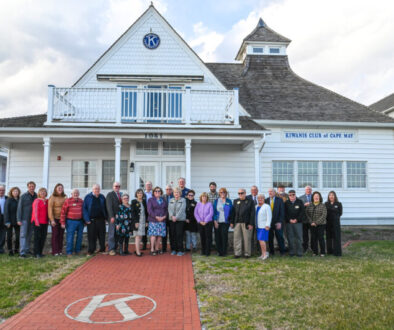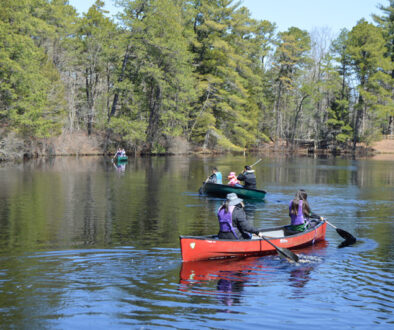So You Want To Be A Metal Detectorist
Using a metal detector can be a great pastime—and is bound to pique many a passerby’s interest. My granddaughter and I took my cheapo metal detector to the beach, unearthing beer bottle caps and tinfoil. An elderly gentleman studying us asked what type of treasures we had discovered in the much trod-upon sand. My granddaughter took great pleasure in sharing her finds with him. He asked if we had ever found coins, doubloons in particular. I laughed and said such a find would indeed seal our interest as serious treasure hunters. He was on vacation, but his home was in Greece. He added, “In my hometown finding gold coins is commonplace, and if you own the land, finders’ keepers.” Unblinking, my granddaughter took it all in. There was no comparison to our handful of bottle caps, and our conversation waned from there. We said our goodbyes and headed along the beach.
In past years, I was always on the lookout for fossils, arrowheads, and artifacts from the Lenape Nation that lived in this area, as well as sea glass and Cape May diamonds, and often unearthed these—except for the illusive arrowhead. Metal detecting was the next step. It can be no more than a contemplative pastime, and a downright healthy diversion as one walks the beach. You’re a part of the environment, even while searching for man made artifacts. Yet what many begin as a hobby can quickly evolve into so much more—particularly when you’re lured by tales of glittering gold jewelry, or precious coins found along our shores.


Another day, yet again equipped with my metal detector, I moved slowly along the beach. Suddenly that notable beep, beep, beep. Aware that I was racing against time with the incoming tide closing in, I moved quickly. The wet sand revealed what first appeared as a coin, but on closer inspection, was a copper token. Then, mere inches away, another one surfaced. What luck! I had discovered PTC (Philadelphia Transit Company) tokens, used for fare when the Cape May and Delaware Bay railroad ran between the steamship port at Sunset Beach, along the bay to Summer Station in Cape May. So far that’s my only significant find but will gladly take it.
Where once there were areas of waist-high sea-polished stones along the Delaware Bay side, mountains of sand have taken their place. Beach replenishment projects along the shoreline bury tokens incredibly deep, making it near impossible to discover. Although some may argue that the offshore sand pumping could unearth rare finds, just exactly how deep do you have to go? As the tide shifts, pushing and tugging away the sand, underwater cliffs form, often mirroring the cliff-like beaches, so a treasure hunter may get discouraged. But remember: the sea has its own agenda, and in the dead of winter erosion, storms, and other forces of nature have a way of exposing items that just may play havoc on your detector.
The Cape May peninsula’s storied past is rich with shipwrecks from World War I and World War II. A railway to aid in industrial sand mining and for transporting artillery was built along Higbee Beach, and military personnel often tested the latest deterrent in the waters of Delaware Bay. At Higbee Beach those tracks are often unearthed after storms and high winds: 118-year-old “ghost tracks.” On occasion, metal shrouds and fragments are washed onto the beach, which can cause a frenzied beeping on the metal detector. Don’t get discouraged; in fact, be more encouraged—if you can make sense of that twisted metal, often embedded with pebbles, it may be an artillery remnant or a railway fragment. You have discovered a piece of history.
There are many makes and models of metal detectors, and it may take some time to find the perfect one. But it doesn’t stop there. What would a “metal detectorist” need besides a metal detector? A headset, preferably a noise-canceling one or at the very least, headphones. This will help drown out the crashing waves and during the busy season, the chatter of beachgoers. Plus, vacationers certainly would appreciate that they don’t have to hear the beeping that goes along with a find. Really, why don a headset if not to keep your find a secret? Although a secret won’t last long when you begin digging. Oftentimes you’ll draw an audience.


A metal heavy-duty sand scoop is also necessary along with a pouch to place your finds in. Some are known as “T Rex” scoops”—imagine the jaws of a Tyrannosaurus. It has a long handle with a scoop attached and openings to allow sand to escape and pick up just the treasure. In addition, a scoop saves your back and is excellent for not only excavating but also filling in the hole with the dislodged sand. You don’t want an unsuspecting beach walker to break a leg.
The ideal times to treasure hunt on the beach are early morning or late afternoon when the crowds are sparser. It’s best to search along the towel line for lost jewelry and coins. The off-season can reap rewards too, replacing summertime tinfoil, bottle caps, and change for something that may be more precious. Note: aluminum tinfoil will set off the detector the same as gold.
One afternoon I came upon two gentlemen on the beach with advanced detectors with headsets and chunky metal scoops. One fellow said that it was a hobby and he’d unearthed many items over the years—recently, an engagement ring a newly engaged couple recently lost. She became so nervous to go into the water because it wasn’t a snug fit, so removed it and hid it in the folds of the beach blanket. On return, to their unwelcome surprise, the gem was buried because the heavy winds dislodged the blanket, covering it with sand. Sadly, the ring was lost. When the locals say shifting sands, don’t take it lightly. The couple searched in vain but came up empty handed. They returned the next morning to continue looking. That’s when they saw the gentleman with his detector and shared with him their heartbreaking story. He was more than happy to help. But the search took longer than expected. Two days later, he found the ring and notified them. The duo was ecstatic and offered him a reward, which he flatly refused. He said, “Just to see this young couple’s smiles was reward enough.” This is often the case for many metal detectorists, even those goodhearted souls who you can contact through their websites.
The other man had a very different reason. He explained that it was tradition that during the annual family vacation at Cape May Point, he and his father would don their metal detecting gear every morning and before dinner at night. A strong bond formed between them as they’d converse while searching for buried items. His father had passed away earlier that year, and the man planned to continue metal detecting each subsequent year as a way of honoring his father.
Some people are quite open about their finds and others remain tight lipped. They’re not to blame, especially if it’s a valuable item. The information they provide to a stranger could aid an unscrupulous individual in unearthing the lost item for themselves. This goes along with saying, as trustworthy detectorists’ advice is to never post your lost jewelry or valued item on social media.
The type of detector equipment you choosedepends on how serious you are and whether you’re a novice or have been at it for a while. Prices for metal detectors can range from a few hundred dollars to thousands. The best metal detector for the beach is a Pulse Induction (PI) metal detector, because of the harsh saltwater environment. There are other types—VLF (very low frequency) models; although saltwater proximity may affect the readings, it still gets the work done.
As a metal detecting expert, Dave Milsted, “the Metalman” advises, “Don’t start cheap. Most detectors under $200 will only find manhole covers. There are several good detectors in the $200 to $400 range.” He recommends finding someone to demonstrate the technique and says it’s always a good idea to have a search buddy, or even join a local metal detecting club. Online videos can be another source.
Dave led me to Jeff Laag of Cape May, another metal detecting enthusiast with a similar background. Both are EMTs, and helping people is in their blood. Jeff is a career fire Lieutenant with The City of Cape May Fire Department. They don’t ask for anything in return—perhaps gas money for long trips—and rarely turn down tips. But the real driving force behind these souls is that they only want to see faces that were once filled with angst and panic turned upside down. Smiles and gratitude are their true goals. As Jeff says. “I don’t want someone not to call for fear of not being able to afford my assistance. Everyone’s financial position is different. Secondly, I don’t believe in holding someone’s property hostage for a ransom.”

On rare exceptions when monetary rewards are attached to the lost memory, they’ll accept, although that doesn’t happen often. Usually, a panicked phone call or email (especially during the summer months) will prompt their services, after the person or people have abandoned their search. Not wanting to lose another moment, Dave and Jeff come to their rescue. Dave once retrieved—in ankle deep water on the beach—a fellow’s NFL Championship ring (it would cost $35,000.00 to replace it). There have been heirlooms lost while tossing a ball at the beach, gold and platinum men’s wedding bands, bracelets, and charms, along with diamond rings that have all been retrieved by Dave and Jeff. One woman had placed her three diamond encrusted rings (valued at $50,000.00) in the beach chairs cup holder before going into the ocean. When packing up, the chair tipped, and the rings were quickly buried in the sand.
Although good Samaritans try to assist, often the jewelry is buried deeper in the sand, shifting the item sideways, appearing to be lost forever. That’s when you’ll need the assistance of an expert. Another distraught woman and her friends were searching in vain for her diamond ring (she put it in her shorts pocket and placed it in a folded-up beach chair before heading into the water). Happenstance: a Cape May beach patrol member arrived on the scene and gave her Jeff’s phone number.
What would we do without metal detecting experts like him? He understands the behavior of the ocean and beach, aware that as he works, the tidal shifts often become his enemy. As Jeff says, “The last thing you want to do is show up to help someone and end up making things worse because you don’t understand your machine’s capabilities and limitations. It’s also important to understand how the beaches behave in different weather and times of the year. Some beaches are far easier to detect than others, due to replenishment and surf break. Trash and beach maintenance can also impact your recovery efforts.”
Another incident was near Sunset Beach. As Jeff explains, “I received a call one evening in December. After speaking with the caller, he explained that he had brought his fiancée to Sunset Beach to propose. It was nearing dusk and when he went to propose the ring was gone. He believed that he had dropped the ring while on the beach and simply didn’t realize it. It was nearing 9pm at this point and the gentleman was obviously concerned about losing the ring. I offered to meet with him, his father, and fiancé that evening. I arrived in the darkness and proceeded onto the beach, to the general area where he had described he was. I saw the tell-tale signs that someone had been searching in the area and switched on my detector. About a minute later I found the ring. Shortly after the man and family arrived and met me in the parking lot, still thinking that the ring was on the beach somewhere. We bent down in front of the headlights of my car, and I told him that I had a ring that looked like his and I wanted him to confirm that it was like the one I had. His father said, ‘that really looks a lot like the one we lost.’ Unbeknownst to me, the client was legally blind and couldn’t tell if it was his ring or not. All in all, they were thrilled to have the ring and complete their engagement!”


The moment your item is lost, Dave’s advice is, “Line yourself up with focal points—a house on the shoreline, a jetty. Immediately get the GPS coordinates from your cell phone, and the time when it disappeared. Knowing this will assist when you must call in an expert.” Remember there’s a race against time, as the setting sun closes in, delaying the search until the next day!
Although most “detectorists” won’t choose this path but rather search for their own treasures along our shores, it’s quite possible to discover a find beyond your expectations. Jeff knows of other metal detecting enthusiasts that have found Spanish Reales, some dating back to the 1600s! The Reales were found along the shoreline and on the shipwrecks off the Jersey coast.
So, whether you’re a novice or a professional, remember to always respect the environment and pay attention to the signage. And FYI: State parks are off limits. Happy hunting.



